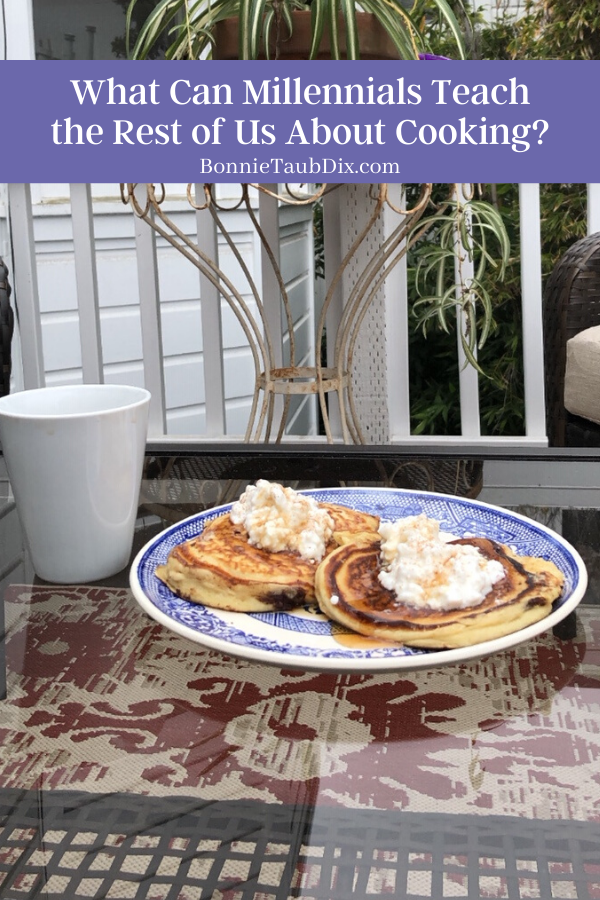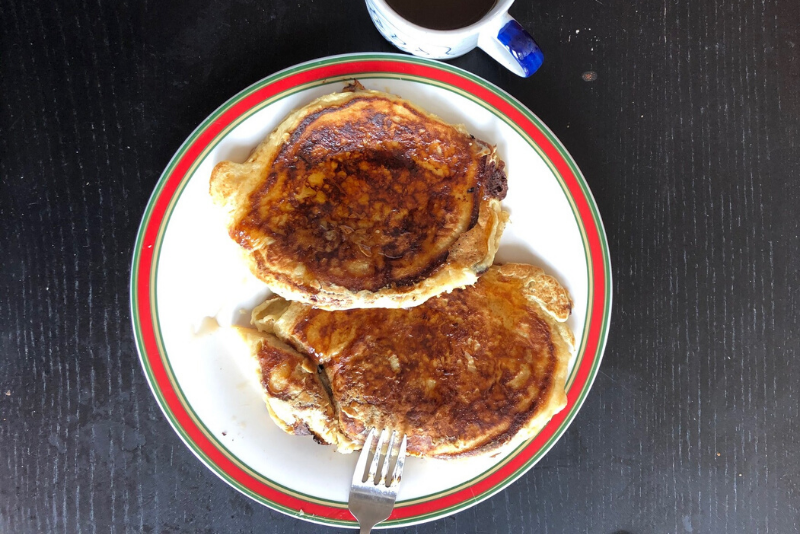For me, cooking is like therapy. When my mind is on slicing, dicing, chopping, and mincing (especially when accompanied by my favorite tunes playing in the background), I feel relaxed and creative. Apparently, this is not the case for many Americans.
According to a study focused on 150 low-income and middle class mothers or grandmothers and 12 working class families for an ongoing research project for the U.S. Department of Agriculture, the process of cooking a family dinner was found to be hectic and anxiety-ridden. The frenetic lives we lead bring seemingly endless to-do lists, tight budgets, and time constraints that prevent us from bringing pressure-free meals to our family tables, the report concluded.
Millennials (defined as those between the ages of 18 and 34) on the other hand, seem to have other ideas when it comes to cooking. The Hartmann Group found that when compared to their Baby Boomer parents and Gen X older siblings, millennials connect with food in a more spontaneous, outside the box fashion. As a mom of three millennial boys, I can attest to their connection to kitchen creativity. And I will admit…I love their concoctions!
My youngest son, at age 25, is a recipe rebel. He purposely tries to swap out basic ingredients and sub in foods that would jazz up the dish he’s cooking up. As a few examples, when he ran out of bread crumbs, he crumbled up breakfast cereals for a crunchy, nutritious topping. Even when he accidentally bought buttermilk when stores had limited stocks during our pandemic, he managed to create buttermilk biscuits, buttermilk pancakes and buttermilk coated chicken that moved basic recipes from bland to bold. So to answer my opening question…I do cry (tears of joy) when he sends me photos like the one above.
Although I have always encouraged my children to not be afraid to ‘play’ with their food, that out-of-the-box millennial mentality can teach us all a thing or two about cooking:

Invest your time.
The International Food Information Council (IFIC) Foundation’s Millennial analysis in their Food & Health Survey found that nearly six in ten Millennials (58 percent) spend 15-45 minutes cooking/prepping dinner on the average workday.
Be a leader, not a follower.
Millennials want it their way, setting a trend in customization, requesting foods that are personalized and made-to-order. In fact, a report in Packaged Facts shows that more than a third of millennials order something different every time they visit a restaurant.
Go for quality vs quantity.
“Millennials value the consumption of healthier, more natural/organic, less-processed and better-tasting foods and brands, and are trending towards farmer’s markets and urban gardening projects all in the name of eating healthier,” per Hartmann Group. Health-halo terms on labels like “local,” “natural,” “authentic” and “premium” influence their food-buying decisions, yet the term “natural,” is one example of a wildly popular word that has no formal, uniform definition. (OK — so maybe Millennials need to read between the lines to not be swayed to by food that wear deceptive, albeit attractive, labels.)
Spend wisely.
IFIC survey showed that if given extra money, millennials would spend it on groceries, entertainment, or fitness. Neilson reports 32 percent of millennial respondents are very willing to pay a premium for sustainably sourced ingredients, compared with 21 percent of Baby Boomers.
Travel without leaving your home.
Millennials are more likely to explore cultural foods and experiment with foreign ingredients including Chinese, Thai, Indian, Mexican, Greek, Mediterranean types of global cuisines through the use of a variety of food products, including spices, oils and flavorings.
Know your BFF foods.
To fuel spontaneity in meal preparation, keeping staples on hand like pasta, rice, breakfast cereals, whole grain breads, canned fish, nut butters, eggs, milk and cheese, just to name a few items, makes putting together a balanced meal more likely and less stressful.
Do it with friends.
“Millennials are turning to family, friends, apps or online communities to improve their diets,” says IFIC’s survey. Hartmann concurs that the internet and social media are their go-to resources, relying on the use of Google, Facebook and YouTube for recipes, information and research about food products.


